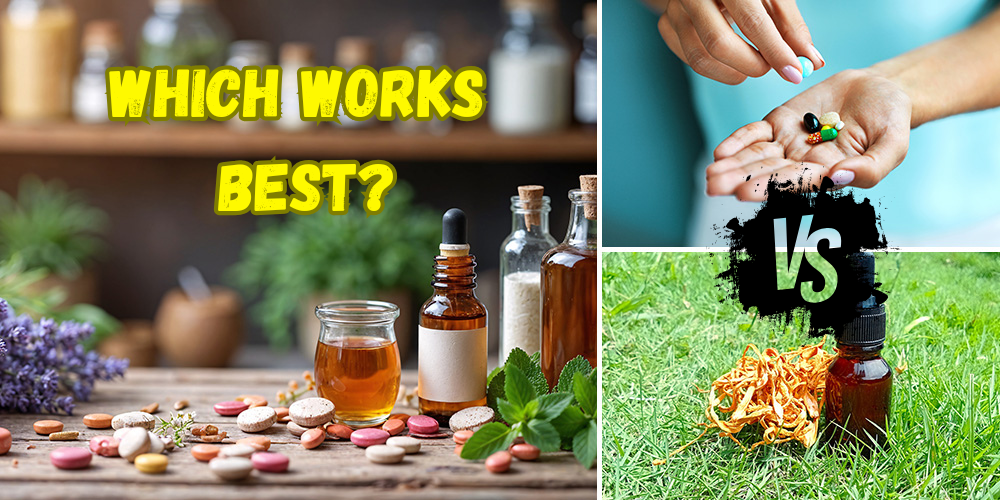
Vitamins VS Tinctures
A healthy and balanced diet provides the body with nutrients for proper development and functioning. However, there are instances where the body lacks a particular nutrient because of poor intake, altered metabolism, or a health condition.
A vitamin or dietary supplement becomes necessary to cover up for the deficiency. They are widely available and marketed as capsules, tablets and syrups.
Herbal tinctures are also great alternatives, offering supplementary nutrients with the therapeutic benefits of herbs.
Do You Need Dietary Supplements?
If you have a significant nutrient deficiency, dietary supplements are important. Some people can continue to live normally with vitamin deficiency. Over time, the lack of nutrients can be rectified through dietary adjustments.
However, chronic and acute conditions must be addressed by taking the specific vitamin to prevent it from compromising the body’s functions.
The food that we eat contains macronutrients and micronutrients. Macronutrients like protein, carbohydrates and fat provide energy and must be consumed in larger quantities.
Micronutrients are needed in small amounts but are vital in supporting the body’s functions. According to the WHO, their impact on health is critical and deficiency in any of them can be life-threatening.
The good news is that these vitamins are available in fortified foods and dietary supplements.
Vitamins VS Tinctures
Tinctures are herbal extracts distilled in alcohol, or sometimes vinegar or glycerin. They are prepared using fresh or dried herb materials and different plant parts.
Tinctures are considered the pure form of herbal medicine because they are made without fillers. The herbal properties of tinctures are preserved, including the potent micronutrients in the plants.
Unlike vitamins which contain only the specific nutrient content, tinctures provide trace amounts of other necessary micronutrients.
Another of the advantages of taking tinctures is its fast assimilation and better absorbability. Without capsulation or the need to break them down, tinctures travel faster into the bloodstream with the help of the alcohol solvent. They are a good alternative to vitamin supplements for minor deficiencies and their prevention.
I really struggled for a long time to find a reliable apothecary to source my tinctures. A while ago, while I was taking classes to become a herbalist, the teacher, which is a very known herbalist, told us about her apothecary – Nicole’s Apothecary. Since then I didn’t trust any other retailer. Her products really work!
Common Vitamins and Minerals
Here are some of the recognized vitamins and minerals used as dietary ingredients. They are available over-the-counter but the FDA advises users to consult their doctors or pharmacist before using them.
Vitamin A (Retinol)
It is necessary for promoting good vision and preventing eye problems. Vitamin A also helps regulate the immune system and supports embryonic development.
Vitamin B-Complex
It is a group of B vitamins essential for a body’s functioning, cell growth and cardiovascular health. B-complex aids in metabolism, energy production, brain and nerve function, cell health and hormone production.
It is recommended for pregnant and nursing women, vegans, and patients with peripheral naturopathy, dermatitis, paresthesia, and skin problems.
B-complex is composed of:
- B1 (Thiamine)
- B2 (Riboflavin)
- B3 (Niacinamide)
- B5 (Pantothenic acid)
- B6 (Pyridoxine)
- B7 (Biotin)
- B9 (Folic acid)
- B12 (Cyanocobalamin)
Vitamin C (Ascorbic Acid)
It is a water-soluble nutrient that helps sustain the immune system and supports the growth and repair of tissues. Vitamin C is an excellent antioxidant that is widely available in foods. However, water-soluble vitamins are not stored in the body and must be replenished daily.
Vitamin D (Cholecalciferol)
Only sunshine and a limited number of foods contain Vitamin D, which is needed for healthy bone mineralization. Vitamin D is one of the essential vitamins prescribed to breastfed babies shortly after birth to prevent rickets or softening of bones.
Vitamin E (Tocopherol)
Vitamin E is an antioxidant that prevents oxidative stress and inflammation. It is needed for healthy skin, hair, eyes and brain.
Most people think that Vitamin E is a supplement to be taken internally. Nobody really talks about applying Vitamin E topically. It’s anti-inflammatory proprieties helped me with my arthritis symptoms. My joints returned five years in age after I started using this salve containing Vitamin E.
Vitamin K (Phylloquinone)
Vitamin K is known as the blood clotting vitamin for its important role in blood coagulation. Vitamin K deficiency can risk bleeding, bruising and hemorrhagic diseases.
Iron
Iron is an essential mineral in red blood cell generation for improving physical and mental well-being. A significant lack of iron leads to iron deficiency anemia.
Nettles are a great source of iron. I recommend you to cook them, as they are very tasty. Or, if you can even make a tincture out of it. I tried to do it once and it’s not that hard… but I just hate being stung by the nettle leaves. I’m having an allergic reaction and everything goes south.
But I didn’t want to give up on nettles that easily. So if you also hate nettle rashes, don’t worry. I’ve got your Back! I got this organic nettle tincture for just a bit more than the price of nettle leaves themselves. It’s a real deal! Check it out here!
Calcium
It is needed for bone building, muscle contraction and nerve impulse transmission. Calcium deficiency causes osteoporosis and bone disorders.
Zinc
Zinc is important in wound healing and stimulation of immune response. It is often given to children to boost their appetite and recover from gastrointestinal symptoms.
Best Herbal Tinctures
Various herbs can be easily made into tinctures. They can also be used alone or combined with other synergistic herbs to boost their healing powers.
Some of the best herbs for tincture preparations are:
Dandelion (Taraxacum officinale)
Dandelion is a rich source of Vitamin K and iron among other nutrients. Its tincture is best for supplementing iron deficiency anemia and boosting the appetite.
Echinacea (Echinacea purpurea)
Echinacea tincture can prevent viral and bacterial infections. It helps boost the immune system and promotes healing.
Medicinal Mushrooms
Medicinal mushrooms are widely available in tea, powder or capsule form. But, they can also be made into tinctures and boost the immune system, brain, and overall health. Mushrooms are also a rich source of Vitamin B12 not otherwise found in plant foods.
Burdock (Arctium lappa)
Burdock roots contain Vitamin A, B vitamins and other nutrients. It can be used to slow down cancer and tumor growth as well as reduce chronic inflammation.
Stinging Nettle (Urtica dioica)
Stinging nettle is a super nutritious herb that provides the body with iron, calcium, zinc and other nutrients. It is also effective against allergies like hay fever and hives.
DIY Cordyceps Dual-Extracted Tincture
Medicinal mushroom tinctures like cordyceps are an effective way of taking vitamins and nutrients needed by the body. Mushrooms contain Vitamin B12 and provitamin D3 which are not available in plants and herbs.
This recipe requires double-extraction involving alcohol and hot water to extract all compounds in cordyceps. If you’d like to skip the DIY process and get the tincture delivered to your place, I’ll leave a link below.
 Ingredients
Ingredients
- ¾ cup cordyceps dried mushroom
- 1 ¼ cups high-proof alcohol (ex. 80-120 proof or 40-60% vodka)
- 4 cups distilled water
Steps
- Place the mushrooms in a glass jar and fill it with alcohol.

- Cover and set aside to steep for at least 2 to 4 weeks, shaking daily.

- After 2 weeks, strain the alcohol into another clean glass jar and set aside. This is your cordyceps alcohol extract.
- Take the mushrooms that remained from the extract and place them in a pot.
- Add the distilled water.
- Let it simmer gently until the water is reduced to half or about 6 hours. You may use a slow cooker for it.
- Strain the water and discard the mushrooms. This is the cordyceps water extract.
- Take equal parts of the alcohol extract and water extract.

- Place the water extract in a clean jar and slowly add the alcohol extract. Stir well.
- Pour some cordyceps tincture into a dropper bottle and refill as needed.

To use: Take a dropperful of the cordyceps tincture once daily. You can dispense it straight under your tongue or add it to food and beverages. Limit your cordyceps tincture intake to 3 tsp a day.
However, if you don’t have the time, the tools, or the place where you can source your ingredients from, you can purchase the same tincture with the same ingredients from here. It’s made by one of America’s top herbalists, and all the herbs in it are either wild-harvested or organically grown – which not a lot of supplements can claim!
But how do I know how to make this tincture and many other remedies at home?
It’s something I learned on my journey to becoming a herbalist. Through the best online course, I discovered how to effectively replace over-the-counter meds with nature’s powerful alternatives.
Now, with my herbalist diploma proudly displayed on my bookshelf, all I can do is encourage you to start thriving and let natural remedies ease your health worries, treating your body with the care it deserves.
Here are some of the unique remedies I crafted myself:
- The Stress Relieving “Pills”
- Doxycycline of the Woods: The Antibiotic That Probably Grows in Your Own Backyard
- The Most Powerful Painkiller That We Lost to History
- Pancreas Drops and Glucose Guardian Blend
- The Tincture That Can Help Every Part of Your Body at Once
- The Fatty Liver Repair Tea
- Homemade Anti-Fungal Salve
- Herbal Migraine Killer
- The Hair Growth Serum
- An Anti-Inflammatory Root Tea
- The Legal “Narcotic” You Can Find in Your Backyard
You can get lifetime access to The Lost Remedies Academy in just one minute. You can even follow it with your family. It’s so interactive and fun, you’re going to love it. Check out more information here!

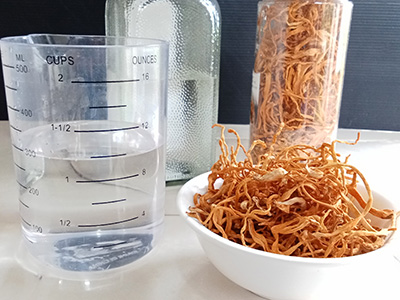 Ingredients
Ingredients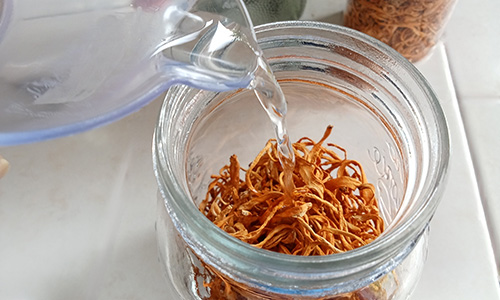
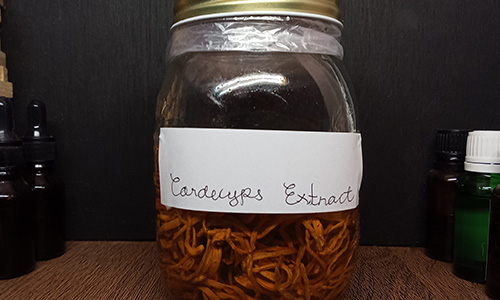
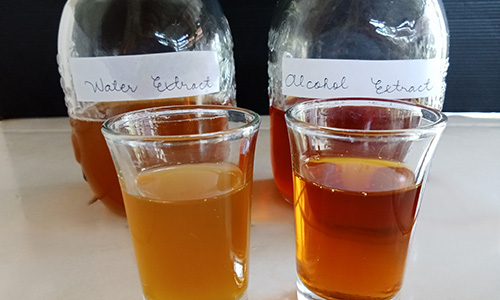
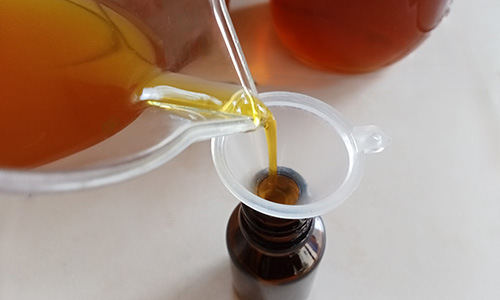
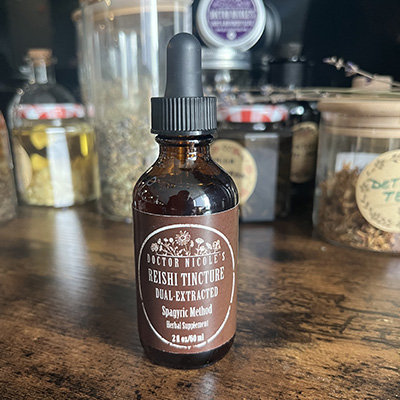
What are the ingredients for fatty liver in your tinctures
What are the ingredients for oregano tinctures ?please
One major mistake in the article…. Tinctures aren’t distillations, yet you state that they are..
Another mistake is the spagyric tincture process you explain.
If this is the method used for the tincture advertised, the word spagyric should be removed.
No point in asking questions ~ no one gets an answer